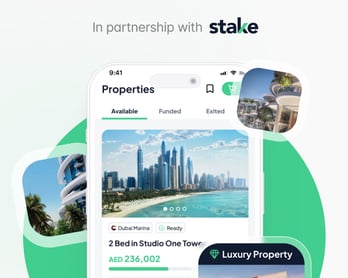There are a million and one startups in existence. Some will make it past startup status and become full-fledged, self-sufficient companies worth more than their initial value. Others will not and ultimately fail.
Yet a select few startups will do so well that they become worth over $1 Billion. These startups come once in a blue moon. Though you might be familiar with a few, achieving a valuation over $1 Billion is an incredibly rare feat.
That’s why these companies are called “unicorns.”
What’s a unicorn, and why does it matter?
Cowboy Ventures’ Aileen Lee originally coined the term “unicorn” in 2013. Lee originally used the term to describe statistically rare companies, as a startup has an estimated .00006% chance of becoming a billion dollar company.
At the time, there were only 39 unicorns on the market. Today, there are over 490 unicorns around the world.
How does a company become a unicorn?
It’s all about their valuation. This can depend on the company’s past performances, growth opportunity, and overall market potential.
For many startups, the billion-dollar valuation will come from funding rounds and receiving a sizable injection of cash from investors. It can also come through an acquisition. For instance, when Facebook bought Instagram for $1 Billion, Facebook gave Instagram the valuation to become an overnight unicorn.
How can you spot a unicorn?
Let’s repeat this again: a company has a .00006% chance of becoming a unicorn, or three out of every five million companies. So, yes, spotting one is hard, to put it mildly.
Not all unicorns are alike, though there are some common characteristics you can look for when searching for the next unicorn — if you can spot it, that is.
They are disruptive. Nearly all unicorns have disrupted their industry. For example, Airbnb redefined what it meant to book a hotel room. Netflix transformed how we rent videos.
They often have a first mover advantage. Unicorns are often the first to market with their idea. They tend to maintain that first mover advantage by constantly innovating and expanding their product or service.
Consider Facebook. They were the first to introduce an online network for college students, and since innovated and created new applications to grow their user base.
They grow fast. Unicorns are constantly growing, so looking at user acquisition and the potential market can help investors spot a rising unicorn. Right before reaching unicorn status, Grammarly announced they had over seven million daily active users across devices. Less than a year later, Grammarly crossed the billion line.
At the same time, companies do not need to be the first to be a unicorn. Lyft, for example, was founded three years after Uber and is growing at a faster rate.
They attract big-time investors. One of the best indicators that a company is on track to becoming a unicorn is their investment history. Soon-to-be or “baby unicorns” tend to have a strong funding history, especially in their C and D fundraising rounds.
They have strong executive leadership. For a unicorn to succeed, it needs strong leadership. This can make or break a company. In fact, many unicorns fail because of executive turnover or mismanagement. Evernote, for example, lost four of its top executives and has since struggled to maintain its status in Silicon Valley. It’s important to look for founders with experience in that industry and/or at scaling other successful companies.
Are unicorns really magic?
Not always. Reaching unicorn status does not equate success. In fact, there are many “zombicorns,” “unicorpses,” and “dead unicorns.” Flipboard, for instance, struggled to maintain valuation after acquisition talks with Twitter stalled, and is no longer considered a unicorn. Just because a company is called a unicorn doesn’t mean it will maintain its valuation.
After all, being a “unicorn” has a lot to do with hype and excitement placed on companies by investors or the media. Some companies struggle to keep up or easily burn through their investment money. Theranos is probably the best example of this.
Even unicorns can experience down exits. The Honest Company actually raised a down round that dipped them below the $1 Billion mark, though they’ve since bounced back.
So why should we care about unicorns?
A true unicorn could present a fantastic investment opportunity, especially at an early stage. Uber, for example, made history for the biggest IPO fail in history. Yet the early investors — the people who came in early with smaller amounts -- made millions. A small investment early on could yield a massive return if that unicorn succeeds.
When investing in a startup, you’re looking to make a return on your investment. By investing in a unicorn before it reaches unicorn status, you’re likely to make a significant return on your initial investment. If said unicorn goes public, you could even see your original investment multiply. To increase your possible return on investment, you want to invest in the startup as early as possible.
Yet investing in a unicorn is nearly as likely as finding an actual horned beast in the wild. If you invest carefully, do your research, and place careful investments in the right companies, there’s a chance you might find yourself owning part of a future unicorn.
This educational article is provided by Republic to help its users understand this area of the market, it should not be construed as investment advice as it is impersonal, disinterested and was produced by Republic for Republic’s users, without remuneration received or expected.


 Oops! We couldn’t find any results...
Oops! We couldn’t find any results...








2 comments